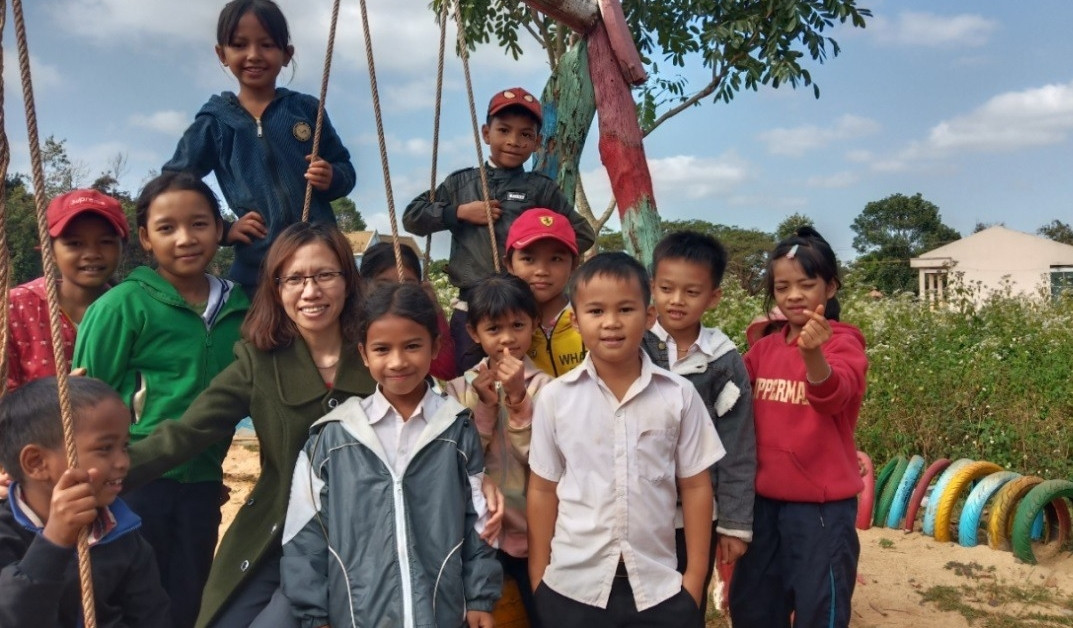Shock during the first time studying abroad is inevitable, no matter how well prepared you are, according to Phan Quoc Dung, a former international student in Germany and Denmark.
1. Good at English but still difficult to communicate
Are you confident with your foreign language ability? If you think that studying abroad is as easy as it is in the textbooks or the exercises that the teachers have practiced, you are probably wrong. Even if you are holding international language certificates with four skills of listening – speaking – reading – writing with almost perfect scores, the shock of language will still come, as soon as you set foot at the airport.
I used to be quite confident with my ability to communicate in English and thought I would have no trouble when I came to Germany under the Erasmus Mundus full scholarship program sponsored by the European Union in 2018. I also thought that everyone will communicate properly like in the recordings, but in fact the opposite.
Like Vietnam, native speakers come from many regions and have different accents and pronunciations, not to mention immigrants or international friends. You will face an environment with all kinds of languages and mixed accents. I was very confused when I first came to Germany and met friends from India, Nepal, Indonesia, Spain. You use English with the characteristics of the language of their country. I was dumbfounded in the first greetings.

Phan Quoc Dung, 27 years old, studied for a master’s degree in Sustainable Tropical Forest Management in Europe. Image: Characters provided
2. Difficulty adapting to the learning environment
Besides the language, the changing learning environment also makes the first stage very difficult. Instead of learning in a “passive” way like a teacher taking notes and presenting slides, I have to be much more active. At my school, most teachers send books, newspapers, documents and ask students to read and take notes carefully before coming to class. Class time is not a place where teachers teach knowledge, but a place for students to exchange and discuss under the supervision and support of teachers.
This sudden change turned my schedule upside down for the first few weeks. I had to arrange a lot of time in the day to be able to “discover” all the huge amount of knowledge that the teacher asked for. Some theoretical subjects such as Forest Management Policy in the program, besides reading reference books, there are sessions to read up to 17 articles on research and policy analysis in different countries. While I only have 2-3 days of doing it. Therefore, if you are not familiar with self-reading and self-study, you are easily shocked and depressed.
3. Spending “expensive”
“50 thousand a bunch of water spinach, who dares to eat”. Hearing this, many international students must be familiar. That is exactly the mindset in spending of newcomers abroad. For some reason, we always use the “conversion factor” to convert the value of products into Vietnamese currency, which is an ice cream cone of 120,000 VND or a bowl of pho over 300,000, then only dare to stand from afar to see the price. , shook his head in frustration and thought he couldn’t buy anything.
It also took me nearly a month to get rid of the weird habit and convert the value into Vietnamese dong. In fact, moving to a new environment, the standard of living and payment is definitely different than in Vietnam and you also need to learn how to spend appropriately. For example, if you receive a scholarship of 500-1,000 euros per month, spending 2 euros to buy vegetables is not too much.
4. Feeling helpless
In the first few days when I arrived in a new city, I was really lost. Away from home, away from family and friends, it’s hard to adjust to a new life right away.
One of the most effective ways during this period that I have ever applied is to maintain regular contact with family and friends in Vietnam. Despite the time zone difference, back and forth messages, sharing about life and happy and sad stories will make you feel lighter. Besides, searching for Vietnamese groups and international student communities in the place where you study is also a quick way to connect to help you soon overcome the feeling of helplessness in your new life.
5. Racism
It is likely that many of you will, like me, suffer from racism. This is a problem that has existed for a long time. Before I went to study abroad, I was advised to dye my hair, to avoid being recognized as Asian. I really didn’t understand until I experienced some terrifying moments.
Many times I was teased by people who deliberately spoke Chinese because they thought I was Chinese. Things like that happen all the time. I was even hit on the head by a group of local youths, while traveling on the road. They got drunk, laughed at each other and huddled me in the middle of a crowded street, whispering and joking around in the local language with content disparaging little Asians.
Even if it was just a momentary situation, my psyche was greatly affected. I have told this story to my classmates and fellow students. Many people shared that they had encountered similar cases and it was difficult to find a solution.
Phan Quoc Dung
at Blogtuan.info – Source: vnexpress.net – Read the original article here


